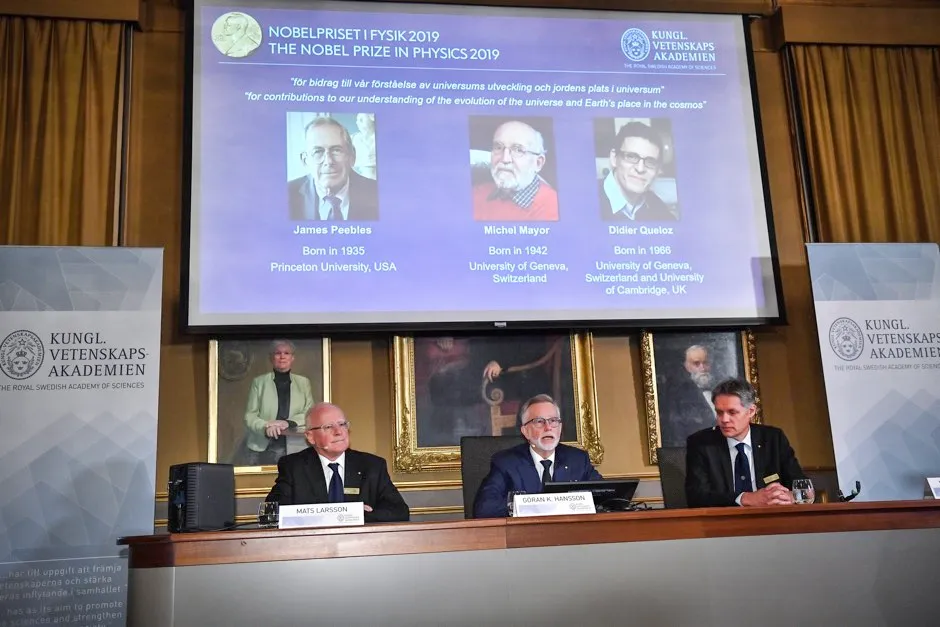Three scientists have won the 2019 Nobel Prize in Physics for their contribution to the understanding of the evolution of the Universe and “Earth’s place in the cosmos”.
One half of the award was given to James Peebles “for theoretical discoveries in physical cosmology”, and the other half jointly to Swiss pair Michel Mayor and Didier Queloz “for the discovery of an exoplanet orbiting a solar-type star”.
An exoplanet is a planet outside the solar system.
Professor Goran K Hansson, secretary general of the Royal Swedish Academy of Sciences that chose the laureates, credited the three for their “contributions to our understanding of the evolution of the universe, and Earth’s place in the cosmos”.
They will share a nine-million kronor cash award (£742,864), a gold medal and a diploma.
The laureates will receive them at a ceremony in Stockholm on 10 December, the anniversary of the death of prize founder Alfred Nobel in 1896, together with five other Nobel winners .
The sixth one, the peace prize, is handed out in Oslo, Norway on the same day.
This was the 113th Nobel Prize in Physics awarded since 1901, of which 47 awards have been given to a single laureate.

Only three women have been awarded it so far: Marie Curie in 1903, Maria Goeppert-Mayer in 1963 and Donna Strickland in 2018, according to the Nobel website.
On Monday, Americans William G. Kaelin Jr. and Gregg L. Semenza and Britain’s Peter J. Ratcliffe won the Nobel prize for Physiology or Medicine, for discovering details of how the body’s cells sense and react to low oxygen levels, providing a foothold for developing new treatments for anemia, cancer and other diseases.
Nobel, a Swedish industrialist and the inventor of dynamite, decided the physics, chemistry, medicine and literature prizes should be awarded in Stockholm, and the peace prize in Oslo.
The Nobel Prize for Chemistry will be announced on Wednesday, two Literature Prizes will be awarded on Thursday, and the Peace Prize comes on Friday.
Follow Science Focus onTwitter,Facebook, Instagramand Flipboard
